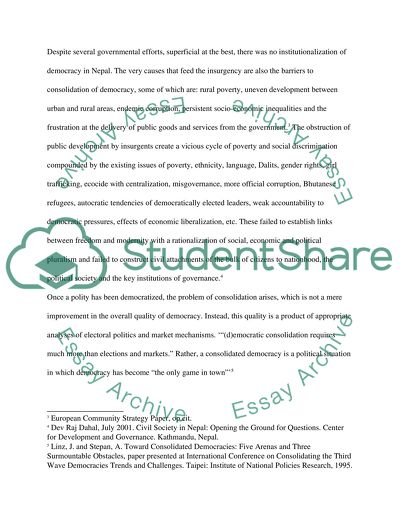Cite this document
(“The Absence of Consolidation in Democratic Nepal Essay”, n.d.)
The Absence of Consolidation in Democratic Nepal Essay. Retrieved from https://studentshare.org/miscellaneous/1515047-the-absence-of-consolidation-in-democratic-nepal
The Absence of Consolidation in Democratic Nepal Essay. Retrieved from https://studentshare.org/miscellaneous/1515047-the-absence-of-consolidation-in-democratic-nepal
(The Absence of Consolidation in Democratic Nepal Essay)
The Absence of Consolidation in Democratic Nepal Essay. https://studentshare.org/miscellaneous/1515047-the-absence-of-consolidation-in-democratic-nepal.
The Absence of Consolidation in Democratic Nepal Essay. https://studentshare.org/miscellaneous/1515047-the-absence-of-consolidation-in-democratic-nepal.
“The Absence of Consolidation in Democratic Nepal Essay”, n.d. https://studentshare.org/miscellaneous/1515047-the-absence-of-consolidation-in-democratic-nepal.


